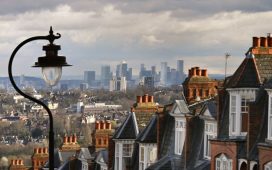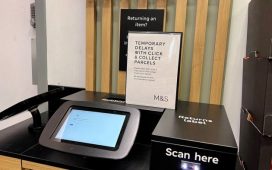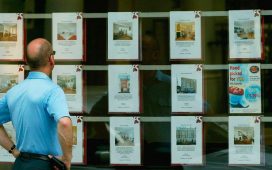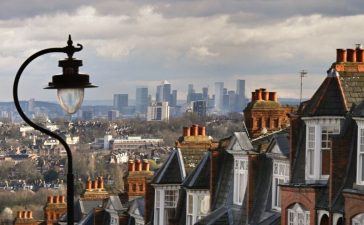Unlock the Editor’s Digest for free
Roula Khalaf, Editor of the FT, selects her favourite stories in this weekly newsletter.
Rishi Sunak has made a pugnacious last-ditch bid to try to avert electoral disaster for the Conservatives in next week’s general election, repeatedly urging voters in a television debate not to “surrender” the UK to Labour.
With new opinion polls pointing to a massive Labour majority, the prime minister came out fighting on Wednesday evening, insisting that Sir Keir Starmer would raise taxes, allow welfare spending to spiral and lose control of the country’s borders.
The Labour leader used the primetime debate on the BBC to seek to link the scandal on election betting affecting Tory candidates and officials with the prime minister’s past breach of Covid lockdown rules.
In fiery exchanges in the campaign’s last TV debate, Starmer said: “The prime minister was himself convicted and fined for breaking the rules.”
“You really shouldn’t be talking about integrity in politics,” he added.
The debate injected some rare passion into a lacklustre election campaign, with Sunak making it clear he was determined to go down fighting, comparing a vote for Labour to an act of “surrender”. A snap YouGov poll suggested viewers thought the debate was a 50-50 draw.
Sunak, in messages partly aimed at core Tory voters thinking of switching to Reform UK, said people should not surrender to Starmer on issues such as border control and welfare. He concluded: “If you’re not certain about Labour, don’t surrender to them.”
The head-to-head debate in Nottingham was Sunak’s last chance in a set-piece event to try to turn around a Conservative campaign which — according to polls — is heading for a disaster on July 4.
Sunak’s campaign has been beset by errors and is now mired in a row about Tory candidates and officials placing wagers on the election. Starmer has conducted a low-risk campaign, which appears to be paying off.
One new MRP mega-poll on Wednesday suggested Labour was on course to win 450 seats, giving it a House of Commons majority of 250, with the Tories reduced to only 60 MPs, fewer than the Liberal Democrats on 71.
Under that dramatic scenario, Sir Ed Davey’s Lib Dems would become the official opposition, while Nigel Farage’s Reform UK would pick up 18 seats.
The Find Out Now and Electoral Calculus poll painted an unusually pessimistic picture for the Conservatives, and Tory candidates with majorities of more than 20,000 — once seen as safe seats — admitted they were at risk. “I could easily lose,” said one.
The MRP poll suggested that, if the results were replicated on July 4, Sunak and deputy prime minister Oliver Dowden would be among those to lose their seats.
A separate WeThink MRP survey for the Economist put Labour on 465 seats, the Tories on 76, Lib Dems on 52 and Reform on 3. Under that scenario, Starmer would enjoy a 280-seat majority.
During the debate, which took place against the background of a noisy pro-Palestinian protest, Sunak repeatedly returned to migration, claiming that, if Starmer tried to negotiate a better trade deal for the UK with the EU, “the price would be free movement”.
Starmer insisted he would not accept free movement, but said: “I don’t accept we can’t get a better deal than we’ve got. I want a better deal on trade relations with the EU.”
Sunak also won applause — in short supply in previous TV debates — for claiming that Starmer would try to negotiate a returns deals for illicit migrants with the Taliban or Iranian ayatollahs.
Starmer said he would process the asylum claims of those in Britain who, under Sunak’s new migration regime, cannot have their applications assessed.
Starmer claimed it would take “300 years” to remove them to Rwanda as Sunak has proposed.
Meanwhile, the two leaders faced questions about the “gamblegate” row in which the Conservatives only belatedly disowned two candidates over allegations related to bets on the election date.
Starmer immediately suspended a Labour candidate, Kevin Craig, for betting that he would lose the Central Suffolk and North Ipswich seat he is contesting.
The Gambling Commission, which is looking into betting irregularities, said it was “focused on an investigation in relation to bets placed on the date of the election where individuals may have had confidential information”.
Additional reporting by Eri Sugiura and Robert Wright












